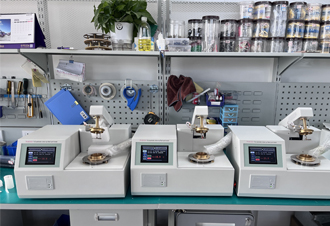 English
English


digital insulation resistance tester
Understanding Digital Insulation Resistance Tester
In the realm of electrical testing, the digital insulation resistance tester emerges as an essential tool for ensuring the safety and efficiency of electrical systems. Designed to measure the resistance of insulating materials, these testers play a crucial role in preventing electrical failures and maintaining the integrity of electrical installations.
Insulation resistance testing is a fundamental practice in electrical maintenance. It involves applying a high voltage to the insulation of electrical equipment and measuring the resistance to identify any degradation in the insulating material. A digital insulation resistance tester simplifies this process, offering accurate readings and user-friendly features that enhance the testing experience.
One of the key advantages of digital insulation resistance testers is their ease of use. Unlike traditional analog testers, digital devices provide clear, precise readings that can be easily interpreted. Most models come equipped with a large display screen, making it simple for technicians to monitor resistance levels during testing. Additionally, many digital testers feature data logging capabilities, allowing users to store test results for future reference and analysis. This functionality is particularly beneficial for maintaining records of routine testing and ensuring compliance with safety standards.
digital insulation resistance tester

Digital insulation resistance testers typically offer a range of testing voltages, often between 250V and 5000V. This versatility enables users to perform tests on various types of equipment, including motors, transformers, and wiring systems. By applying different voltage levels, technicians can assess insulation integrity under varying conditions, ensuring comprehensive evaluation.
Another important feature of modern digital testers is their ability to perform automated tests. These devices can be programmed to conduct multiple tests sequentially, reducing the time and effort required for comprehensive analysis. Some models even come with advanced features like insulation resistance decay tests and polarization index measurements, offering deeper insights into the condition of electrical insulation.
Safety is a paramount concern in any electrical testing environment, and digital insulation resistance testers are equipped with several safety features. Many models include protective mechanisms to prevent users from applying excessive voltage to the equipment under test. Additionally, they often come with an auto-discharge function that safely discharges the stored voltage after testing, minimizing the risk of electric shock.
In conclusion, the digital insulation resistance tester is an invaluable tool for electrical professionals. Its ease of use, accuracy, and advanced features make it essential for ensuring the safety and reliability of electrical systems. Regular insulation resistance testing not only extends the lifespan of electrical equipment but also protects against potential hazards, contributing to a safer working environment. As technology continues to evolve, these testers are likely to become even more sophisticated, further enhancing their role in electrical maintenance and safety.
-
Differences between open cup flash point tester and closed cup flash point testerNewsOct.31,2024
-
The Reliable Load Tap ChangerNewsOct.23,2024
-
The Essential Guide to Hipot TestersNewsOct.23,2024
-
The Digital Insulation TesterNewsOct.23,2024
-
The Best Earth Loop Impedance Tester for SaleNewsOct.23,2024
-
Tan Delta Tester--The Essential Tool for Electrical Insulation TestingNewsOct.23,2024





